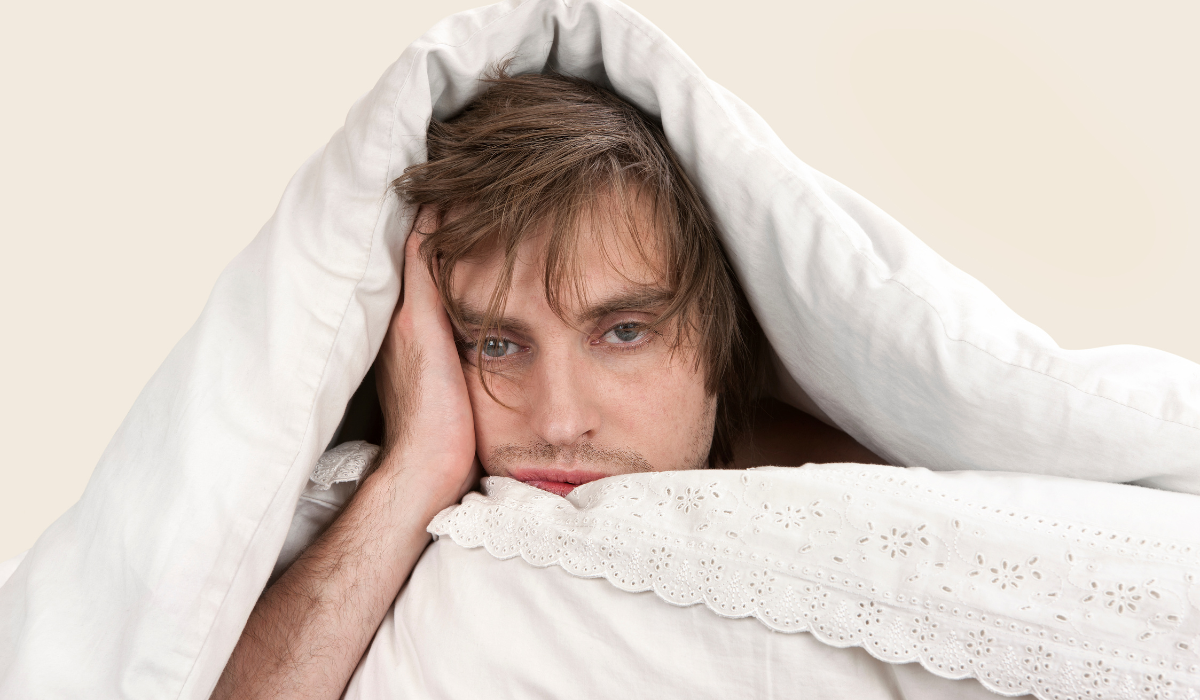Can Medieval Sleeping Habits fix America’s Insomnia

Sleep deprivation has become a significant problem in modern society, with more than 30% of adults experiencing insomnia at some point in their lives. The fast-paced lifestyle, stress, and technology are some of the reasons behind this sleeplessness. However, have you ever thought of reverting to the sleeping habits of medieval times? It may sound absurd, but research indicates that people slept better in the Middle Ages.
Link between Modern Life and Sleeping Habits
The modern lifestyle has significantly impacted our sleeping habits. The use of technology, especially before bedtime, has been shown to interfere with sleep patterns. The blue light emitted by electronic devices suppresses the production of melatonin, a hormone that regulates sleep-wake cycles. Stress and anxiety, which are prevalent in modern society, also affect sleep quality. Consuming caffeine and alcohol close to bedtime can also interfere with sleep.
Can Medieval Sleeping Habits Help Fix Insomnia?
Adopting medieval sleeping habits can help improve sleep quality. Sleeping in two sessions can provide an individual with more restful sleep, and the break in-between can be used for relaxation activities such as meditation. Sleep hygiene practices such as keeping the sleeping area clean and well-ventilated can also help improve sleep quality. Religious and social status can also play a role in sleep quality, as wealthy individuals may have access to better sleeping conditions.
Medieval Sleeping Habits
In medieval times, people slept differently from how we sleep today. They usually slept in two sessions of four hours each, with a break in-between for other activities such as prayer, sex, or reading. The sleeping patterns were influenced by religion and social status, with the wealthy sleeping on softer beds and having separate sleeping quarters. Unlike modern times, they didn’t have smartphones, laptops, or TVs to keep them awake at night. They also practiced sleep hygiene by keeping their sleeping areas clean and well-ventilated.
Sleeping patterns of prehistoric humans
The study of prehistoric humans and their sleeping habits is challenging due to the lack of written records. However, anthropologists and scientists have used various methods to piece together the sleeping patterns of early humans.
One method is to study the sleeping habits of modern hunter-gatherer societies that live in a similar way to prehistoric humans. Research has found that these societies tend to sleep for shorter periods of time than modern humans, with an average of 6.4 hours per night. They also tend to have a biphasic sleeping pattern, meaning that they sleep for a few hours at night and then take a nap during the day.
Another method is to study the sleeping patterns of primates, as they are the closest living relatives to humans. It is believed that early humans may have had a similar sleeping pattern to primates, with periods of sleep and wakefulness throughout the day and night.
It is also thought that prehistoric humans may have slept in shifts, with some members of the group staying awake to keep watch while others slept. This would have allowed the group to be protected from predators and other dangers during the night.
Overall, the sleeping patterns of prehistoric humans were likely influenced by a variety of factors, including their environment, social structure, and available technology. While it is difficult to know for certain what their sleeping habits were like, studying modern hunter-gatherer societies and primates can provide insights into the sleep patterns of early humans.
Conclusion
In conclusion, sleep is a vital component of our overall health and wellbeing. Insomnia, or the inability to fall asleep or stay asleep, can have significant consequences for our physical, mental, and social health.
While modern society has shifted towards a more monophasic sleeping pattern of 7-8 hours per night, there is evidence to suggest that biphasic or segmented sleeping patterns may be more natural for humans. Understanding our evolutionary history and the sleeping patterns of our ancestors can provide insights into how we can improve our own sleep habits.
There are several tips for improving sleep quality, including establishing a regular sleep routine, creating a sleep-conducive environment, and avoiding substances that can disrupt sleep. It is also important to recognize the role that culture and societal norms can play in our sleep patterns.
By prioritizing our sleep and making small changes to our habits, we can improve our overall health and wellbeing. So, let’s take a lesson from our prehistoric ancestors and make sure we are getting the rest we need to live our best lives.
Causes of Insomnia
- Stress and Anxiety
Stress and anxiety are common causes of insomnia. When we are under stress, our body releases cortisol, a hormone that increases our heart rate, blood pressure, and glucose levels, making it difficult to fall asleep.
- Medical Conditions
Several medical conditions can cause insomnia, including asthma, allergies, chronic pain, and Parkinson’s disease.
- Poor Sleep Habits
Poor sleep habits, such as irregular sleep schedules, using electronic devices before bedtime, and consuming caffeine or alcohol, can disrupt our sleep patterns, making it difficult to fall asleep and stay asleep.
Conclusion
In conclusion, sleep is a vital component of our overall health and wellbeing. Insomnia, or the inability to fall asleep or stay asleep, can have significant consequences for our physical, mental, and social health. While modern society has shifted towards a more monophasic sleeping pattern of 7-8 hours per night, there is evidence to suggest that biphasic or segmented sleeping patterns may be more natural for humans.
RECENT ARTICLES
